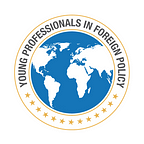The Global Nature of Border Disputes: Learning from Conflict in Georgia
By Dan Kent
As the Russian-Ukraine crisis continues to roil unabated, it is worth considering the broader array of crises that have characterized much of the post-Soviet world. Contention over borders and spheres of influence regarding Russia is hardly new. One of the most recent examples comes from Georgia in the Caucasus, over which a five-day war was fought in 2008. Like the current crisis, an alleged reason for the war was centered on Georgia’s potential future membership in NATO. The aftermath has led to one of the most bitter modern border disputes and still shapes Georgian politics to this day.
Abkhazia and South Ossetia
Georgia, a small country in the South Caucasus, is nestled between the Black and Caspian Seas, with Russia to its north, Turkey to its southwest, and Armenia and Azerbaijan to its southeast. Like elsewhere in the region, Georgia’s borders have both long-standing and present-day turmoil, with deep ties to Russian influence and internal ethnic conflict.
Georgia gained independence from the Soviet Union in the early 1990s. The country was quickly plunged into civil war along ethnic and geographic lines. Two regions of particular upheaval were the already somewhat autonomous areas of Abkhazia and South Ossetia. Both regions have ethnic populations distinct from the majority of Georgians, along with their own languages. They have also each long seen themselves as separate from the rest of Georgia and generally chafed under rule from Tbilisi.
The civil war of the 1990s led to a relative stalemate in Georgia between these regions, with both Abkhazia and South Ossetia, supported by Russia, maintaining their de facto independence to some degree. A multilateral peacekeeping force remained in both territories after an agreed ceasefire in 1994. In Georgia, the Rose Revolution of 2003 propelled Abkhazia and South Ossetia to the spotlight again, when new president Mikheil Saakashvili vowed to reintegrate the territories into greater Georgia.
Territorial tensions continued to simmer until they boiled over in 2008 when a much-disputed series of events ultimately resulted in a full Russian invasion of Georgia over South Ossetia. The conflict was dubbed the Russo-Georgian War, the first war in Europe in the new century. Although Russia pulled its troops out of undisputed territories in Georgia, significant forces remained in Abkhazia and South Ossetia, later designated by much of the international community as “Russian occupied.” While an EU-commissioned report found that Georgia was to blame for the start of the war, it also noted that Russia had extended the conflict far beyond what was reasonable. In the aftermath of the war, Russia formally recognized the independence of both Abkhazia and South Ossetia and, with the end of the international peacekeeping missions in both regions, increased its military forces in each territory as the security guarantor. The result was increased dependence on Russia by both regions and speculation that Russia could eventually absorb them into their borders formally–a possibility bolstered by frequent discussion of the topic in South Ossetia and Abkhazia, and the ever-increasing borderization of the areas to separate them from the rest of Georgia.
However, the general international consensus that Russia went too far may have been too late. Russia suffered essentially no concrete diplomatic consequences due to its brazen actions and continued occupation of the two renegade territories. Moreover, little international unity in the face of the events as they unfolded means that Russia could flex its military power in its direct “neighborhood” and essentially punish a nation that had expressed interest in joining NATO.
Reconciliation talks since then have yielded little if any results, as both regions have only moved closer to Russia in recent years. Moreover, reunification seems as remote as ever, as successive governments in Georgia, Europe, and the United States have all failed to make significant traction on the issue.
Ukraine and Georgia in Parallel
The parallels between the internal Georgian border crisis and the current-day events unfolding in Ukraine are numerous. Much like in Georgia, Russia has been militarily supporting ethnic minority separatist groups in the east of Ukraine for years. The separatist groups of Ukraine in question are even physically close to the border of Russia–just like Abkhazia and South Ossetia. Ukraine was one of two countries, along with Georgia, mentioned in a 2008 NATO Declaration. The statement promised that “these countries will become members of NATO.” But the Ukrainian civil war stoked by Russia led to the internal displacement of millions of people and put off membership in NATO as only a distant future possibility given the security situation. Georgia’s brief war with Russia similarly dashed their aspirations for NATO.
Before the present war, the Biden administration also publicly stated that Russia was preparing for a staged pretext to invade Ukraine, as Russia was allowed to do in the Russo-Georgian war of 2008. The invasion as it has played out could result in a more permanent Russian presence on Ukrainian soil, especially in the east, analogous to the now-long term Russian occupations in South Ossetia and Abkhazia.
The 2008 events in Georgia and the collective international shrug likely emboldened Russian actions in its geographic sphere, ultimately followed by the annexation of Crimea. Although the response to the events in 2014 was more forceful, Russia may have calculated that short-term economic pain is worth a long-term assertion of local military authority. Whether the West’s response to the current Ukraine crisis has proven strong enough to outweigh any long-term benefits as perceived by Russia though is an open question.
Conclusion
The Russo-Ukrainian crisis should feel similar because, unfortunately, the events have contours remarkably identical to the history of the Georgian territories. International actors can gauge risks and the proper course of action more appropriately by recognizing this and learning from past mistakes.
